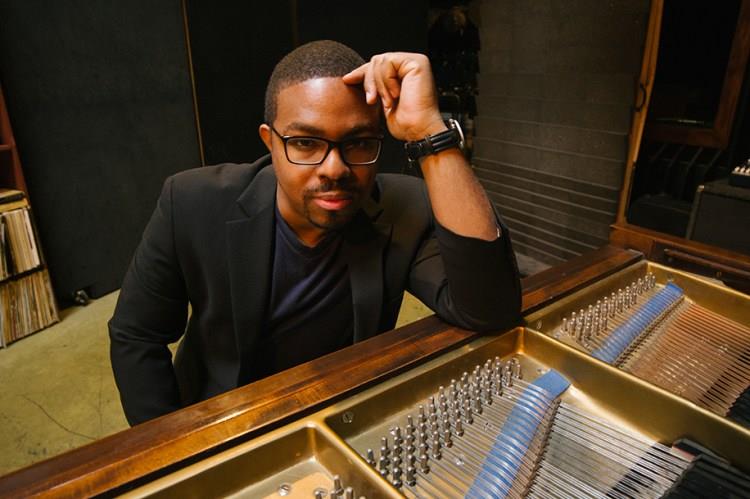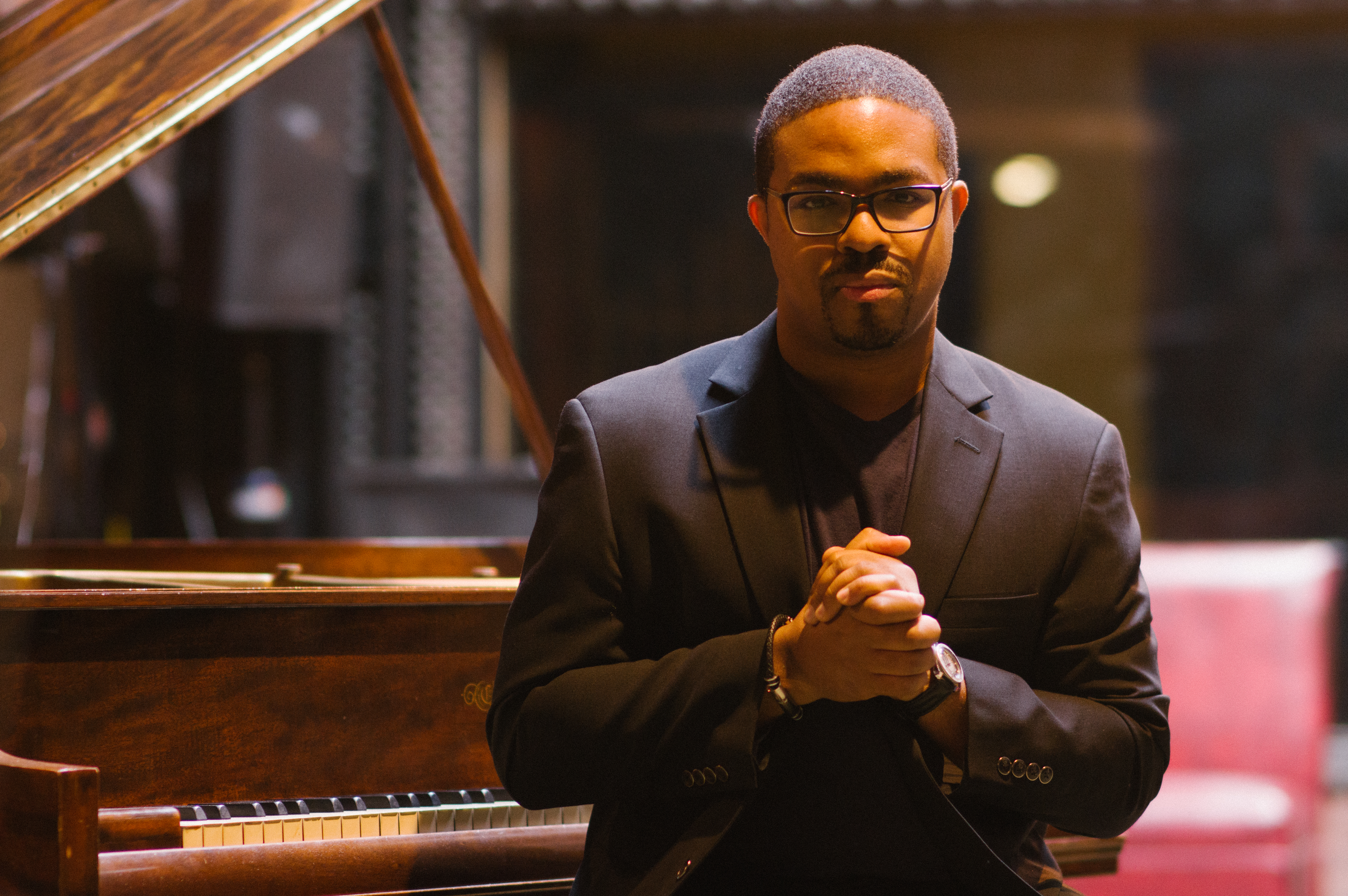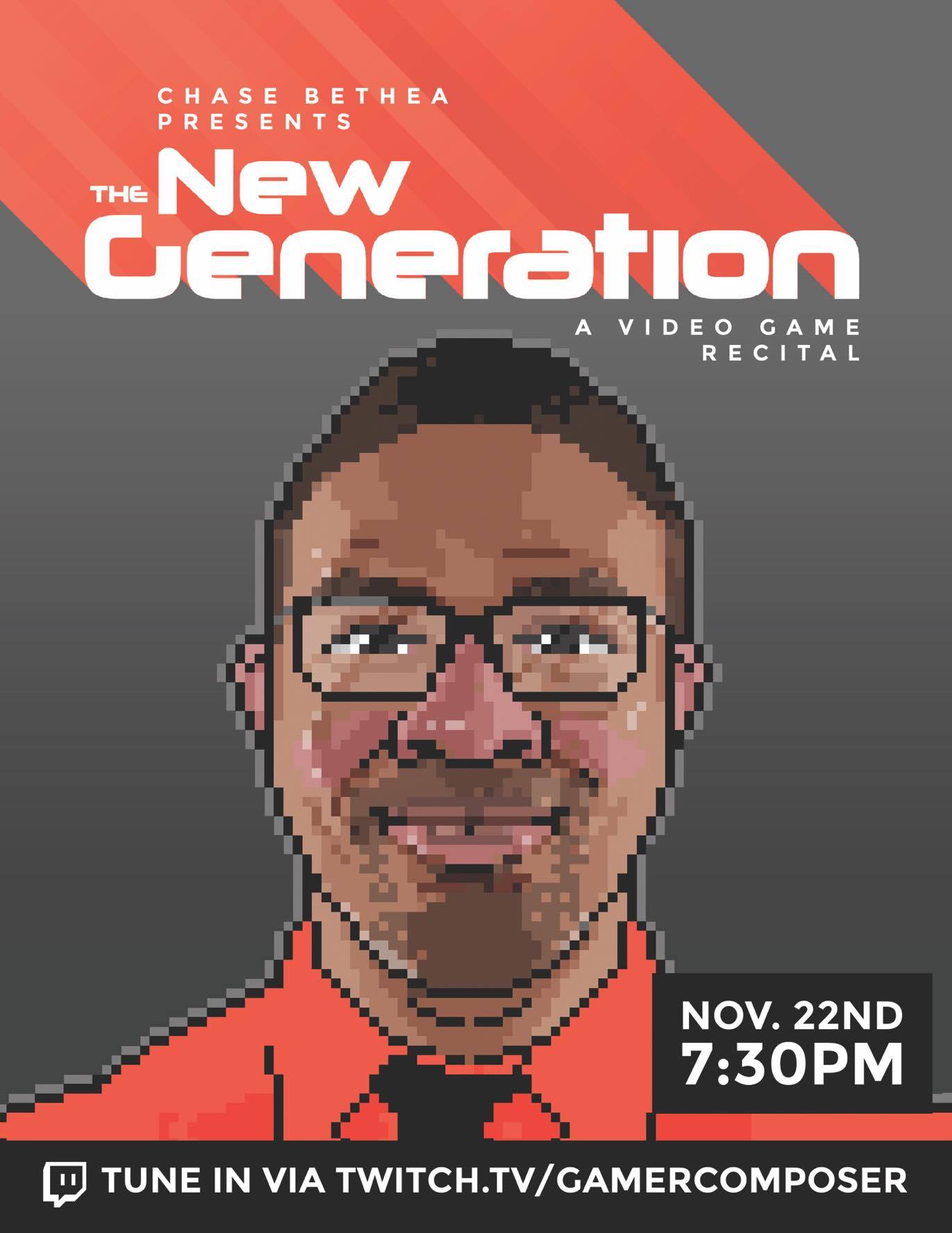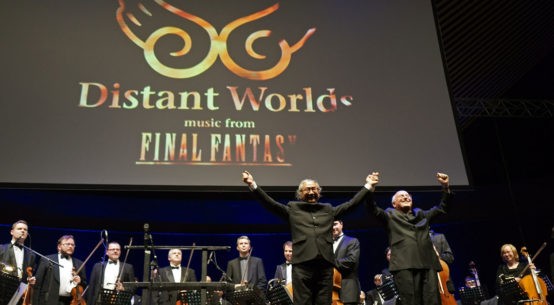
Sam Hughes caught up with composer Chase Bethea! Chase Bethea is a freelance Composer, Sound Designer/Audio Engineer for Video Games and a variety of other Media. In the beginning of his career, Chase worked as an intern at Mobotory Games in 2011, while simultaneously going to school for his AA in Music Theory and Composition. Read the full interview below:
Before we discuss your current projects, let’s talk about your career so far. How did your journey into audio for video games start?
In 2011, I interned at a game studio called Mobotory. My role there was to create sound effects and music for a mobile game. My time there was short-lived as the studio dissolved and I started to seek out how to do game audio as a freelancer. I searched online for some developers looking for music and sound for their game and participated in developer contests that needed an audio person. I landed my first freelance gig the same year and continued to look for the next project consistently.
How do you approach a project when you first receive it? Is there often a lot of interfacing with game designers at the beginning?
After the contract and negotiations are agreed upon and signed, I dive into the game design document and read it as many times as I can until I start to conceptualize what the game is going to look and feel like. In addition, I discuss with the developer game influences and references that will kickstart my ideas. Learning what the game developers and influences are help me get closer to their vision and allows me to brainstorm quicker as well as build a sketch sound palette in my mind. If there is concept art, I build off of those pieces. If there is already a build, I play the game and feel out the pace and style and conflate what I comprehended from the game design document while I play. When that occurs, my brain locks into similarities of games that I have played or read about and I begin to understand what the sound world should be for the project.
Likewise, could you go a bit into your process while composing? Do you write directly into a DAW, do you use notation software, paper and pencil, etc?
After I finish playing the build or reading the game design document, I discuss with the team my ideas for the sound world and also check game references with them to see if the project was influenced by it in any way. Then, I build a sketch template, which may be the sound palette for the game and send it off to the developer. Once they approve it, I build on the palette throughout the project. I thoroughly enjoy writing on the piano. I write most of my chord progressions or melodies on there and either record them on my phone or on paper (if I have paper available.) After piano sketches are done, I proceed to layer the instrumentation and refine the orchestration as well as arranging.
Throughout your career, you’ve touched on a wide variety of compositional genres while still maintaining your individual style. I’d love to hear your thoughts on your voice as a composer- influences, philosophy, etc.
My philosophy is to create audio that glues the project together. I grew up on games since I was four years old. The more I played them, the more my mind subconsciously understood how the audio fit with it. I played a myriad of pinball machines, coin-ops etc. I became cognizant of all these things and I apply them to the projects that I collaborate on. I continue to play to refine my critical listening as well as for pleasure. I think that is where most of my influences comes from. I have been told by people that I have more of a Japanese sound than a American sound and that makes sense to me. I mostly played Japanese developed games on Game Boy, Sega Genesis and Playstation, as a child into my adolescence. So, the music and sound design that I heard back then is ingrained in my mind now. I also grew up in Chicago so, I have a lot of jazz influence too. In all, I would say my voice as a composer was solidified seven years before I started my career because I knew what worked naturally. I was studying video games without knowing it. So, when the light bulb went off to pursue game audio everything clicked. If I am somewhat lost on how the audio should sound for a project, I look for similarities in the design, dig in my huge collection of games and play a few to see if any ideas spawn.

Are there any moments or projects where you’ve felt you’ve particularly grown as an artist?
I definitely felt that I grew as an artist during the I Can’t Escape: Darkness project. During the gestation of the game, I learned how to compose vertically, taught myself how to build a mini Foley stage to create the sounds I wanted that sample libraries did not have and implement all the assets in OpenAL. I was determined to step it up from the original game, “I Can’t Escape.”
Particularly in the more recent release of </reality>, you have a masterful use of combining electronic sounds, including rhythm and percussion elements, with acoustic instruments. Can you tell us a bit about how you created the aural world for this game, and where it took you?
Thank you very much! Initially, when I was reading the game design document I started making a journal. I wrote about the character’s emotions that they might encounter from beginning to end depending on who was playing the game. I selected adjectives for each character and began writing themes for them on the piano. From there, I returned to Cubase and orchestrated the rest. I did some MIDI mock-ups of the instruments that I wanted to replace live (Strings, Saxophone, Trumpet, Piano.) Other instruments that I owned I played into Cubase. As I read and played the Visual Novel more, I knew that I wanted the sound to be organic but glitchy. The main theme, “Facts of Existence” sets the tone for that from the beginning. It is the “</reality” theme. “Subconscious Intelligence” follows suit. So, I knew I was going to use live instruments to represent the “real-world” and synth instruments, odd percussion layers as well as time signatures to represent the “VR World.” As I got deeper into the story, I was able to relate to some of the character’s feelings in my own life. So, I wrote those emotions into those character’s and story arch themes. Overall, the music took me on this soul-searching journey. I was pushing myself to escape old ways that I composed and minimize the use of composing everything digitally (all-inside the box.) As I reflect on it now, this ended up being quite similar to how a few of the main characters was always trying to escape reality.
Not only are you a prolific composer, you’ve also worked as a sound designer in video games. How do you approach sound design versus composition? Do you find there are overlaps in your ways of thinking about these two different audio types, or do you look at them completely differently?
Thank you again for the compliment! The way I approach sound design has changed a little over the duration of my career. In the beginning, I learned to layer sound effects from libraries and sweeten them with a few processing plugins. Now, I try to make the sounds from synthesizers and layer those as well as use some processing effects either natively in the synthesizers or externally. I have recently been mixing synth patches that I have created and layering them with sample libraries. I find this to be more of a challenge yet unique because I have to match the quality of the sample libraries I have with the synth patches. Similar to mixing different string sample libraries to blend together and/or with a few real live string players. I believe that there is certainly and overlap in how I think about the audio types. Most people would disagree with me. However, when I first heard of and studied John Cage, I was able to hear what he heard and thought about sound. It is interesting because recently I have come across some up and how to buy ambien online coming concert composers whose music sounds more sound design-esque than the traditional chord progression and melodic format. I thoroughly enjoy it because it is fresh and proves my point that both types should be thought of the same. One just has to open their ears more, be more optimistic and experiment as much as possible.
Can you tell us a little bit about your involvement with the podcast “Game Audio Happy Hour”?
Haha! You must have seen the less than occasional adult beverages that we have on the show. I was asked by Kyle Johnson to be a fill-in panellist twice on Game Audio Hour back in December 2016. Soon after in January 2017, Kyle asked me to officially join the team/panellist with Vincent Diamante, Michael Shapiro and Alex May. My involvement includes contributing game audio topics and techniques to show. Most importantly, ensuring that our audience is gaining something as well as being entertained.
It’s pretty clear that you’re involved in a wide variety of projects! How do you juggle all of your professional responsibilities without going crazy?
Well, I workout. I like to jump rope and run. These exercises release toxins and helps me clear my mind. I also realize that I am only one person. I do not have a team that I meet with everyday. I do not have an assistant or an intern. So, that means I have to pace myself. I am not a fan of procrastination. I do not like to work under pressure. It does not mean I can not, but I like to save myself the stress. If I can be as proactive as I can about my professional responsibilities then I will. Time and time again, my pro-activeness has saved me in the future because something always comes out of left-field.
Do you have any advice for young composers and sound designers, either those just getting started or trying to find more meaningful projects?
Yes. Please do not work for nothing. Work out some kind of trade in services with a developer or a request a $15 Burger King gift card (because you have to eat too.) Try and negotiate upfront payment or revenue share combination in your contract. If someone works for nothing in return then they are devaluing the industry rapidly and we have quite enough of that already. We do not need any more. We need people in the industry that stand for worth. This is how we show game developers of all sizes that we are needed and we just as important as the artist and programmers etc. If someone is not confident in their skills to request trade or payment then, they should participate in game jams. I believe this will give someone a clear understanding if they want to continue the path of game audio.
And lastly, if you could have a drink with any musician, living or dead, who would it be and why?
I believe I would like to have a drink with Joe Hisaishi. He is one of the few musicians I have seen perform and it gave me goosebumps. It fuelled me with inspiration to write better, practice more and enjoy the process of being an artist. I would love to discuss his fears (if any) hardships that have occurred during his career, work experiences, influences from his childhood, work styles and how his lifestyle had changed since he began his musical journey.
Awesome, thanks again for being with us Chase it was great to chat with you!
Thank you so much for the amazing questions! It was a pleasure talking with you!
You can also tune it on Twitch to catch Chase presenting The New Generaton: A Video Game Recital on the 22nd November 7:30PM PST.
LINKS
Chase Bethea
We hope you enjoyed the interview, feel free to check out more of these at the Interviews page. Also, don’t forget to sign up to our Monthly Newsletter to make sure you don’t miss anything!
If you’re feeling generous there’s also our Patreon page and we appreciate all the support!
The Sound Architect





